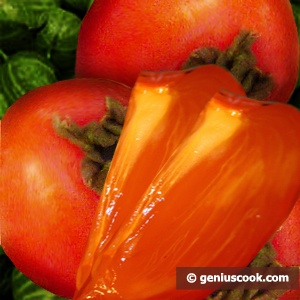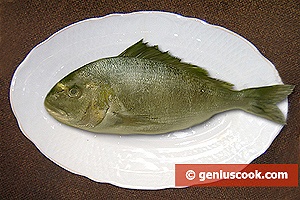Persimmon Health Benefits
 Persimmons originated in China. Then, the fruit extended to other parts of East Asia and was later cultivated in Japan. It was only at the end of XIX century that persimmons had become known worldwide.
Persimmons originated in China. Then, the fruit extended to other parts of East Asia and was later cultivated in Japan. It was only at the end of XIX century that persimmons had become known worldwide.
The persimmon contains almost twice as much dietary fiber and useful trace elements as the apple does. Also, the fruit has high antioxidant content. In mature fruits there are a lot of water, ashes, protein, carbohydrates, organic acids and tannin. Besides, the fruit offers vitamin C, provitamin A along with apple and lemon acids. It is an excellent source of iron, calcium, copper as well as magnesium and kalium.
Persimmons and Healthy Digestive System
Persimmon is a dietary product that is recommended for the treatment of digestive disorders due to its pectin content. In traditional medicine, the fruit is used to treat stomach diseases.
Persimmon, Glucose and Fructose
A large amount of sugars contained in persimmon, mostly glucose and fructose, maintains a healthy vascular system and strengthens cardiac muscle, while blood glucose level remains in the normal range. Yet diabetics should avoid consuming persimmons.
How to Select Non-astringent Persimmon
You have to know how to select persimmons so that you aren’t unhappy with astringent taste of some species. Only soft and fully ripen fruits have a real juicy and delicious flesh. Store persimmons with extreme care, trying not to damage their skin. It is better to store them frozen. Actually, freezing is a way to remove the astringency. Eating 1-2 persimmons a day is not only satisfying but is also a healthy addition to our diet.
Nutritional Properties of Persimmons
Japanese persimmons, large orange-red fruit, are very wholesome. This is one of the sweetest fruit with glucose and fructose making up a quarter of its weight. A few of them can stave off hunger. Persimmons are as nutritious as other fruits of the gods, like figs and grapes. Many people even snack dried persimmons instead of candies during their tea time. This fruit is so high in glucose that when dried, it naturally develops a white coat of sugar on top. This property of the fruit is essential to people suffering from heart failure. Human body uses sugars in persimmon to strengthen cardiac muscle.
Persimmons and Healthy Heart
It is useful for people with a heart condition to know that persimmons are high in potassium. Usually, those who take diuretics, leading to increased potassium excretion, have to take the potassium-containing drugs additionally. But you don’t have to take extra drugs if instead you add persimmons along with apricots and apples to your diet. At the same time, the persimmons themselves have a diuretic action. This is the major property of the fruit which allows to consider it as a real drug in cardiology. Long ago, physicians recommended patients with vascular ailments eat two to three Japanese persimmons daily. The effect was beyond all expectations.
Useful Properties of Persimmons
- Persimmon has a diuretic action and tonic properties.
- This fruit soothes nervous system.
- Also, persimmon increases working efficiency.
- The fruit has an antibacterial effect.
- Persimmon prevents from vascular diseases.
- Magnesium contained in persimmons lessens risk of kidney stones.
- Vitamin A protects against cancer.
- Vitamins C and P help to reduce fragility of the blood vessels.
Cosmetic Uses of Persimmons
Persimmon may be used for cosmetic purposes. There is a great facial mask made from the flesh of persimmons, yolk and lemon juice. It reduces pores and wrinkles making your skin smooth and matte.






